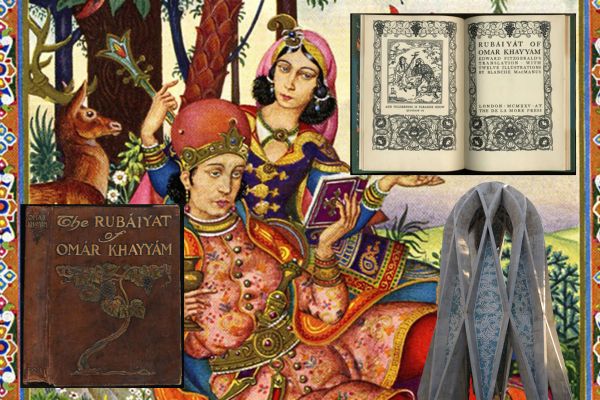
The Rubaiyat of Omar Khayyam is a collection of quatrains (four-line poems) attributed to the Persian polymath Omar Khayyam, who lived in the 11th and 12th centuries. Khayyam was a philosopher, astronomer, mathematician, and poet, and while he made significant contributions to science and mathematics, he is most widely known in the West for his poetry, particularly the Rubaiyat.
The Rubaiyat is famous for its philosophical musings on the nature of life, fate, and the cosmos. It explores themes such as the fleeting nature of life, the pursuit of pleasure, the acceptance of death, and the uncertainty of existence. Khayyam’s quatrains reflect a deep sense of skepticism, questioning the meaning of life, divine will, and the idea of an afterlife.
The Rubaiyat is not a single, cohesive narrative but rather a series of individual poems that express Khayyam’s reflections on life and the human condition. The poems are filled with metaphorical imagery, drawing upon nature, wine, love, and the stars, often reflecting the tension between worldly pleasures and spiritual concerns. The poet calls for a life of enjoyment in the present moment, as the future remains uncertain and uncontrollable.
The quatrains have been interpreted in various ways, ranging from expressions of despair and existential questioning to calls for a hedonistic enjoyment of life. Some scholars see Khayyam’s work as a form of Sufism, a mystical approach to Islam that emphasizes personal experience and divine love. Others see it as a critique of religious orthodoxy, reflecting Khayyam’s agnostic and often skeptical stance towards religious dogma.
The Rubaiyat was relatively unknown in the West until it was translated into English by Edward FitzGerald in 1859. FitzGerald’s version became wildly popular and introduced the works of Khayyam to a global audience. His translation, however, is not a literal rendering but a poetic interpretation, capturing the essence of Khayyam’s thoughts rather than a word-for-word translation. FitzGerald’s version brought out the beauty and mysticism of the Rubaiyat but also introduced some poetic license, and for this reason, there are numerous translations that offer alternative readings of Khayyam's work.
The Rubaiyat of Omar Khayyam has influenced not only literature but also art, music, and philosophy. It remains one of the most beloved and widely read works of Persian literature, offering timeless reflections on human existence, the passage of time, and the quest for meaning.
